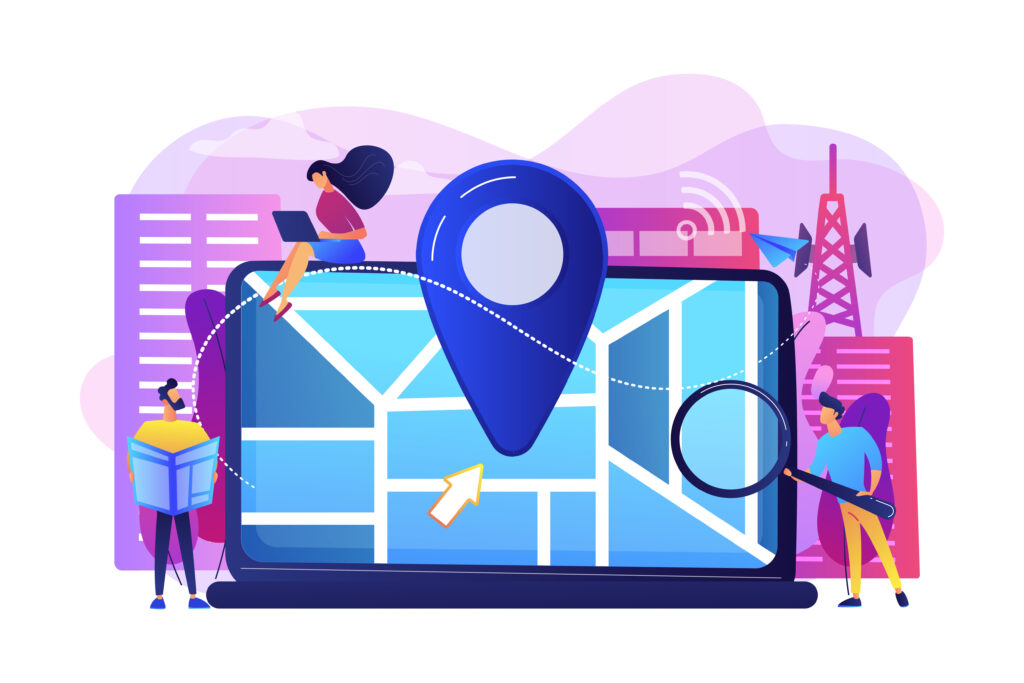Search Engine Optimization (SEO) Services
Search Engine Optimization (SEO)
In the digital age, having a robust online presence is essential for businesses of all sizes. Search Engine Optimization (SEO) is a crucial aspect of digital marketing that helps businesses improve their visibility on search engines like Google, Bing, and Yahoo.
This, in turn, drives organic traffic to their websites, which can lead to increased sales and brand awareness.
Understanding SEO and its various services is vital for any business looking to thrive in today’s competitive online landscape.

Why is SEO Important?
Increased Visibility: Most users don’t scroll past the first page of search results. If your website isn’t ranking well, it’s unlikely that potential customers will find you. SEO helps improve your ranking, increasing your chances of being seen.
Organic Traffic: SEO focuses on attracting organic traffic, which is more valuable than paid traffic. Users who arrive at your site through search engines are typically more engaged and more likely to convert.
Credibility and Trust: High-ranking websites are often viewed as more credible and trustworthy by users. Implementing SEO strategies can enhance your brand’s reputation and foster trust among potential customers.
Cost-Effectiveness: Compared to paid advertising, SEO is a more cost-effective long-term strategy. While it may take time to see results, the ongoing benefits of organic traffic can far outweigh the costs.
Improved User Experience: Good SEO practices contribute to a better user experience on your site. This includes faster loading times, mobile optimization, and easy navigation—all of which can enhance customer satisfaction.
SEO Services
Keyword Research
Keyword research is the foundation of SEO, identifying the terms and phrases people use when searching for products or services related to a business. Effective keyword research targets the right audience and helps optimize content, boosting the chances of ranking higher on SERPs.
On-Page Optimization
On-page SEO focuses on optimizing individual web pages to improve their relevance to specific keywords. This includes optimizing title tags, meta descriptions, headers, and image alt text, as well as ensuring the content is valuable and engaging for readers.
Content Creation and Optimization
Content is crucial for SEO. Creating high-quality, informative, and engaging content that aligns with targeted keywords can significantly improve rankings. This includes blog posts, articles, infographics, videos, and other types of content that can attract and retain visitors
Link Building
Link building is a key off-page SEO strategy that involves acquiring high-quality backlinks from reputable websites. Backlinks signal to search engines that a website is authoritative and trustworthy, which can improve its ranking potential.
Technical SEO
Technical SEO ensures a website meets the technical requirements of search engines, such as fast loading speeds, mobile-friendliness, and secure browsing (HTTPS). It also includes fixing broken links, improving site structure, and creating an XML sitemap, all of which contribute to better crawlability and indexing by search engines.
Local SEO
For businesses with a physical presence, local SEO is essential. This involves optimizing a business’s online presence for location-specific searches, including setting up and optimizing Google My Business profiles, obtaining local citations, and managing reviews.
SEO Audits
An SEO audit is a comprehensive analysis of a website’s current SEO status. It identifies strengths, weaknesses, and areas for improvement, evaluating elements such as site structure, on-page elements, content quality, and backlink profile. An SEO audit is typically the first step in any SEO campaign, providing valuable insights and forming the foundation for a tailored SEO strategy.
1. Keyword Research

Keyword research is the foundation of any successful SEO strategy. It involves identifying the terms and phrases that potential customers use when searching for products or services related to your business. Effective keyword research helps you target the right audience and optimize your content accordingly.
Importance:
By using relevant keywords, you can attract more organic traffic and ensure that your content meets the needs of your target audience.
2. On-Page Optimization

On-page optimization refers to the various techniques applied directly on your website to improve its search engine ranking. This includes optimizing title tags, meta descriptions, header tags, and content to ensure they are aligned with targeted keywords.
Importance:
Proper on-page optimization ensures that search engines understand the context of your content, making it easier for them to rank your pages appropriately.
3. Content Creation and Optimization

Quality content is at the heart of SEO. Creating informative, engaging, and keyword-rich content not only improves your chances of ranking higher but also keeps users on your site longer, reducing bounce rates.
Importance:
Search engines prioritize high-quality content that answers user queries. Regularly updating your content keeps your site fresh and encourages repeat visits.
.
4. Link Building

Link building is the process of acquiring backlinks from other reputable websites to your own. Backlinks act as votes of confidence from other sites, signaling to search engines that your content is valuable and trustworthy.
Importance:
A strong backlink profile enhances your site’s authority, improving its chances of ranking higher in search results.
5. Technical SEO

Technical SEO involves optimizing the backend of your website to improve its performance and crawlability by search engines. This includes optimizing site speed, mobile responsiveness, and ensuring that your site is free of errors.
Importance:
A technically sound website ensures that search engines can efficiently crawl and index your pages, which is crucial for improving rankings.
6. Local SEO

For businesses that serve specific geographic areas, local SEO is essential. It involves optimizing your online presence to attract more local customers through search engines.
Importance:
Local SEO helps your business show up in local searches, making it easier for nearby customers to find your services.
7. SEO Audits

An SEO audit is a comprehensive analysis of your website’s performance in terms of SEO. This includes reviewing on-page elements, backlinks, site structure, and overall online presence.
Importance:
Regular SEO audits help identify areas for improvement, ensuring your SEO strategy remains effective over time.

